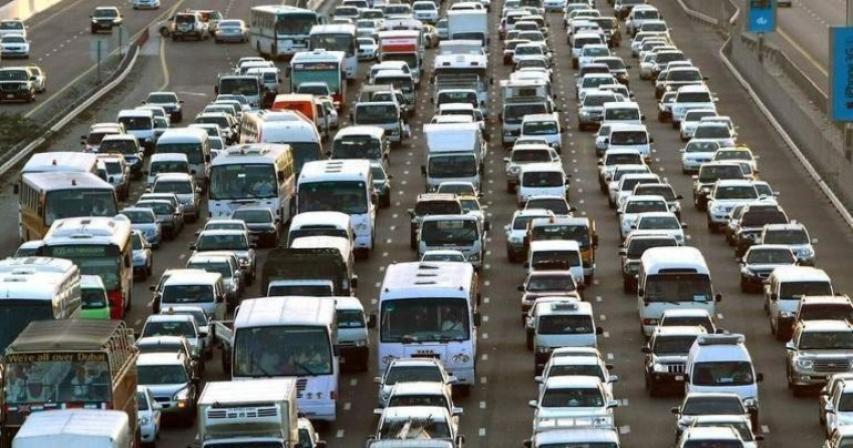Could 'odd-even scheme' reduce UAE peak traffic?

Drivers and people who use public transport have noticed that there has been an increase in traffic jams recently due to schools reopening and residents coming back from their summer vacations.
In the UAE, roads are typically spacious and kept in good condition, however, the high number of cars leads to congestion, specifically during peak times. Indeed, the nation boasts one of the top car ownership rates globally, as numerous citizens see private cars as necessary for everyday travel.
In Dubai, the number of vehicles with Salik tags has increased by 8.8% to 4.2 million, compared to the same period last year. Active registered accounts saw a year-on-year growth of 14.6%, totaling around 2.5 million currently compared to approximately 2.2 million in the second quarter of 2023.
According to information from the Roads and Transport Authority (RTA) five years ago, there were 540 vehicles per 1,000 people in the city, compared to 305, 213, 101, and 63 vehicles per 1,000 residents in New York, London, Singapore, and Hong Kong respectively.
In the year 2006, which was less than twenty years ago, the total count of registered vehicles in Dubai was approximately 740,000. The number increased to 1.4 million in 2015, and grew to 1.83 million by 2020. Currently, it is estimated that approximately 3 million vehicles are in circulation in Dubai during weekdays, with cars traveling from nearby emirates included.
Therefore, the issue at hand is: Could it be beneficial to take a specific amount of cars off the streets on particular days of the week in order to alleviate congestion? Could the introduction of an 'odd-even scheme' in major cities around the world assist in alleviating traffic congestion during peak hours?
Restriction of road space for certain vehicles
Dr Monica Menendez, who is the associate dean of Engineering for Graduate Affairs at New York University Abu Dhabi (NYUAD), stated that the odd-even scheme, also known as road space rationing, involves removing certain cars from the road on specific days based on the license plate's ending number.
Vehicles with license plates ending in 1 and 2 cannot be driven on Mondays; those ending in 3 and 4 on Tuesdays; those with 5 and 6 on Wednesdays; those with 7 and 8 on Thursdays; and those with 9 and 0 on Fridays. Every vehicle is permitted on the road during the weekends of Saturday and Sunday.
The plan has been put into practice in various cities globally, such as Mexico City, Athens, and Beijing. Some cities have implemented it continuously, while others have used it intermittently. The strategy, frequently used to reduce air pollution, has experienced varying degrees of effectiveness.
Advantages and disadvantages of the plan
Dr Menendez observed that the odd-even scheme is, in theory, a straightforward method, provided there is sufficient enforcement, to reduce the number of cars on the roads and alleviate both traffic congestion and air pollution.
It appears fair because all individuals, regardless of their income or social status, could be impacted equally. However, she noted that households with multiple cars are usually less impacted, as they may just end up purchasing additional vehicles and still rely on private transportation daily.
The NYUAD professor of civil and urban engineering, who is also the director at the Research Centre for Interacting Urban Networks, mentioned that this may result in increased vehicle ownership rates and a greater need for parking facilities.
Focused strategy
The current query is: How can the odd-even plan be successfully put into operation in a large city such as Dubai?
Dr Menendez proposed the idea of implementing the odd-even scheme in specific roads or areas of the city instead of city-wide.
In any case, it is important to make sure that individuals have other choices for transportation. She added that enhancing public transportation and other alternative transportation modes appears to be crucial.
Dr Menendez emphasized that no one approach can address every traffic issue. Therefore, we need to consider implementing a mix of tactics to enhance the effectiveness of both the road transportation network and other options for transportation, all while introducing initiatives that discourage car usage by encouraging more environmentally friendly modes of travel.






Comments